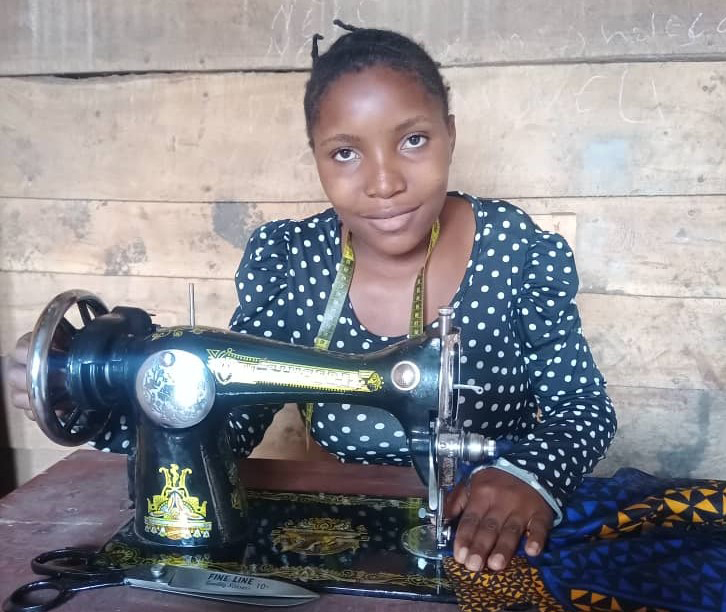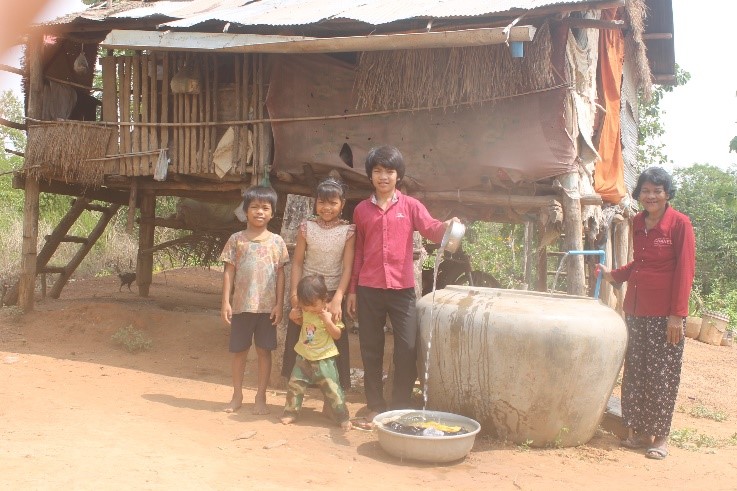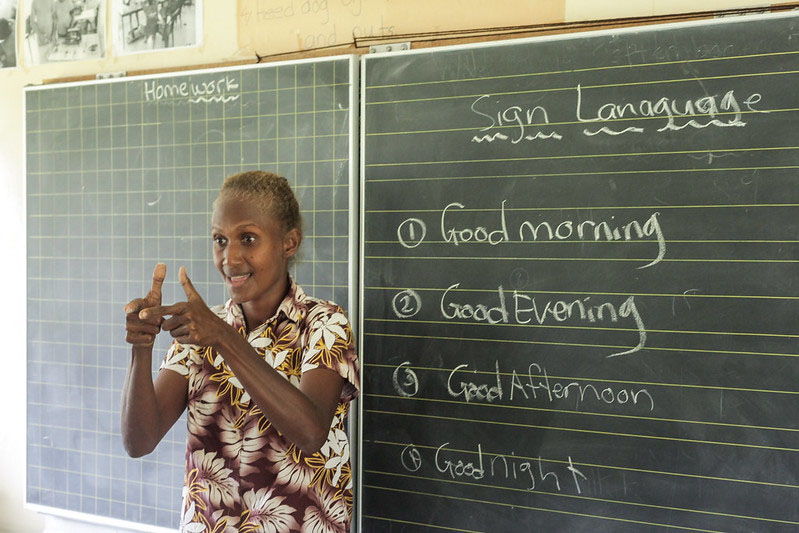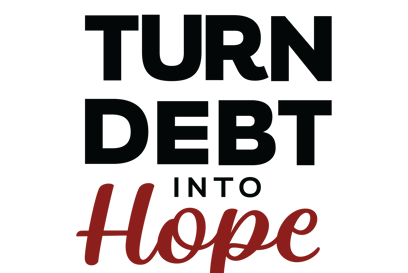With your generous support, Caritas Australia works with communities throughout the world to tackle issues of poverty and inequality, forging a path towards better living conditions.
We want to share with you some of the real-life stories of resilience and hope. These stories of courage and transformation are made possible through the support of kind people like you.
Finding hope in the Democratic Republic of Congo
Rachel is an 18-year-old girl living in the Democratic Republic of Congo. After her father died, Rachel had to stop going to school. Despite being the eldest in her family, due to the gender inequality deeply rooted in her society, her mother preferred to send her sons to school. Rachel instead was tasked with caring for her siblings, which is a testament to the deeply ingrained poverty and inequality she was facing.
“After dad died, it was a real ordeal at home,” Rachel said.
“We had absolutely nothing at home: no food, no medical care…nothing! We were even kicked out twice and in a very shameful way from the houses for inability to pay the rent."
Rachel later became pregnant and was forced to live with her partner’s family, who made her live in a small, dilapidated kitchen outside the house. Despite being pregnant, she was only allowed one small meal a day.
With the support of our partners Caritas Goma, Rachel was able to participate in a youth vocational training program. Rachel learnt about entrepreneurship and business creation, management of income-generating activities and financial education. Her trainer says that Rachel is one of the most courageous learners, and always punctual and diligent.
Through the program, Rachel learnt how to sew and is now earning an income as a seamstress. She is now a respected member of her family and community and is better able to support her baby when it arrives.

Rachel learnt how to sew and is now earning an income as a seamstress. Photo: Caritas Goma
“My courage and my determination pushed my partner to look for a job, he wants to become a taxi-motorcycle driver,” Rachel says. “Through my sewing, I became a respectable young girl in the community. I am proud to be a mother, and proud of Caritas!”
Along with your generous support, this program is also supported by the Australian Government, through the Australian NGO Cooperation Program (ANCP).
A grandmother’s determination to provide clean water
Seoun is a 66-year-old grandmother living in a village in rural Cambodia. As the head of her family, she is responsible for the wellbeing of nine people, including her six grandchildren.
In Seoun’s village, nearly 90 percent of households had faced water shortages, a striking illustration of the poverty and inequality faced by these communities. Most people had to buy water from trucks, which was costly for families who are already living in poverty.

Seoun (right) and her family live in a village in rural Cambodia. Photo: Anakot Kumar.
Before joining the Upholding Community Dignity Together program, Seoun and her family faced numerous challenges. Without a stable source of income and a lack of access to safe and clean drinking water, it was difficult for Seoun to maintain her family’s health and wellbeing. Constant droughts and floods also led to frequent crop damage.
With your generosity and support, our local partners Anakot Kumar helped install a water system in Seoun’s village, providing her family and community access to clean water and therefore improving their sanitation and livelihoods. This will reduce expenses for water by five times in comparison to buying water from a truck. Seoun’s community has also received training in health and sanitation.
Along with your generous support, this program is also supported by the Australian Government, through the Australian NGO Cooperation Program (ANCP)
A teacher empowering the next generation in the Solomon Islands
Margret is a teacher at a rural training centre in the Solomon Islands for students who are deaf. Having been born deaf herself, she knows the challenges that this poses to education and employment.
“I faced discrimination. My needs felt neglected and I felt excluded from the community,” Margret says.
Margret’s early childhood was difficult until she learnt sign language at the age of seven, which enabled her to communicate with other friends who are deaf.
Margret is now married with a two-year-old daughter, and teaches sign language and life skills like sewing, cooking, nutrition, hygiene and hospitality to teens and adults. Some of her students have never been to school before.
She enjoys teaching students practical life skills that will help them earn a living. However, the school faced water shortages for about half the year. Staff and students had to walk off campus twice a day to collect water.
With Caritas Australia’s support, Margret’s school was able to install water tanks, repair school property, and help prevent the spread of coronavirus. As a result, the school is able to maintain its own water supply for drinking, cooking and washing. It’s also boosting food security by increasing its agricultural production to build resilience in the face of future disasters.
Thanks to the support of people like you, the school now has access to sufficient, safe water to supply the school’s population of 150 – and students are able to focus on their studies.


















